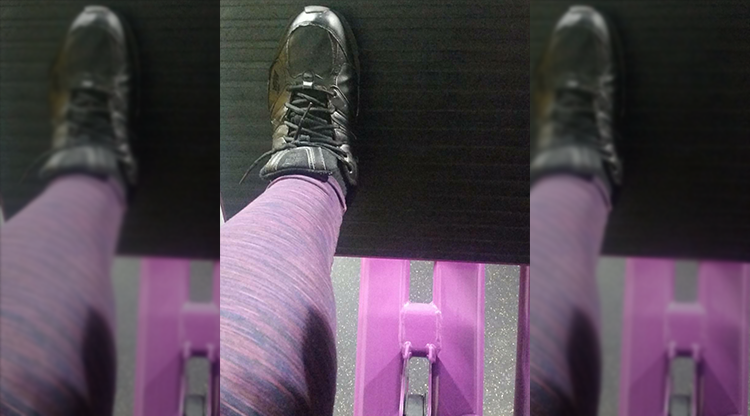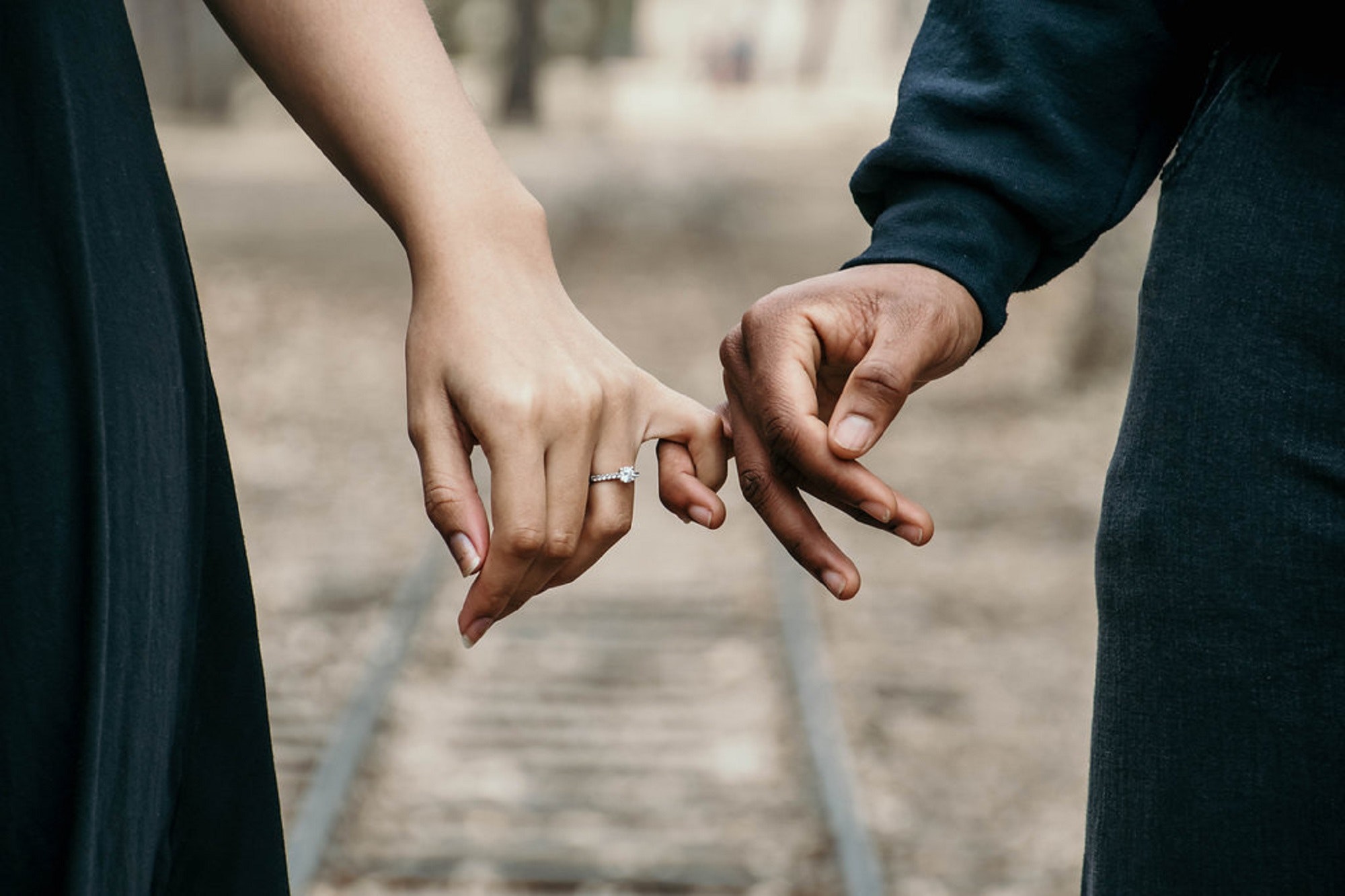Living With Lupus
Living With Lupus : After A Rough Week, I Made It!
I would be lying to say if this week wasn’t a struggle, but at least I can say I made it.

This week was a bit rough for me.
For a week and a half, I have been recovering from a viral and upper respiratory infection. Though the eye of the storm is gone, it is still lingering and I feel it.
Lupus and infections
As I talked about in my first blog post, Lupus makes you more susceptible to getting infections because of the medications you may take. Unfortunately, when it hits you, it can hit you hard.
On Sunday, I had two major projects due for my classes in my graduate program on top of other obligations with Unheard Voices and communications consulting. I have been off the antibiotics for four days now, and today it finally feels like it is starting to kick in. Because I felt a littler better, I started back up working out.
I made it
I will do another blog post about my weight loss journey. Briefly, last year I had lost over 80 pounds but gained most of back after my doctor put me on a medication and made me unaware of the major side effect of gaining weight. I have managed to get some of it back off but it has been a struggle. It was a great feeling being able to get back into the gym today. Sometimes I hate restarting journey’s, but for my health it is well worth it.
I would be lying to say this week wasn’t a struggle, but at least I can say I made it.
Health & Wellness
Lupus patients are being affected amid the coronavirus pandemic
As the country deals with the impact of the novel corona virus also known as COVID-19, Lupus patients are being affected as well.

Across the world, countries have been dealing with the impact of the novel coronavirus also known as COVID-19.
As the number of cases and death toll continues to rise in the United States, scientists and medical professionals are working around the clock to find a vaccine for the deadly respiratory disease.
Clinical trials for vaccines have begun but it could take at least a year to be introduced to the public.
While several drug treatments are being used in hospitals and clinical trials, unfortunately no studies have officially proven their effectiveness. One drug in particular is hydroxychloroquine, a drug currently used to treat malaria, lupus and rheumatoid arthritis.
During a White House press conference, President Trump touted the anti-malaria drug as a promising treatment along with the combination of Zithromax (Z-pack).
While I was optimistic to hear about this possible remedy to give relief to COVID-19 patients, I became deeply concerned about those who already take hydroxychloroquine unrelated to COVID-19.
I am one of those patients.
In 2014. I was diagnosed with mixed connective tissue disease and a mild case of SLE Lupus. The medication hydroxychloroquine has saved my life.
When the announcement was made about the medication, my immediate concern was, would this prompt a surge in orders causing a short supply for those who need it?
After the FDA announced approval for the drug to be used for COVID-19 patients hospitalized or in clinical trials, the demand surged. Patients who take this drug for their autoimmune disorder immediately started to notice a shortage when it came time to refill the medication. Even some patients are rationing the amount of pills they take because of the shortage. Thankfully for myself, I have enough medication but time will only tell when I am due for a refill.
The shortage is more than concerning.
Lupus is a long-term autoimmune disease in which the body’s immune system becomes hyperactive and attacks normal, healthy tissue. Without this drug, it can cause debilitating flare ups like fatigue, fever, joint pain, and inflammation. If I missed prolonged dosages of this medication, I would end up in the hospital. The hospital is the last place I want to be during a pandemic, especially being immuno-comprised.
Lupus patients already deal with the stressors of this disease. Imagine being without a medication that helps manage and lessen these symptoms.
Various organizations have taking charge by demanding government officials to address the issue. One of them is Chronic Endurance.
Chronic Endurance is a Texas non-profit who addresses issues autoimmune disease patients face. Its founder Jyrah Knight, an autoimmune warrior herself, wrote a letter to Texas governor Greg Abbott on behalf of the organization, urging Abbott to take the shortage seriously.
“I am writing this letter to express my sincere disdain and frustration about the way autoimmune disease patients are being prioritized amid the COVID 19 Crisis. Due to the presumptive statements made regarding the medication Hydroxychloroquine, many autoimmune patients including myself, are not able to receive the medication needed to sustain our daily lives.” Knight said.
The Lupus Foundation of America has also called on drug manufacturers to increase production of hydroxychloroquine, noting the efficacy and safety of these drugs for lupus are well known and routinely prescribed.
The shortage is unacceptable and the mounting frustration is understandable.
While a viable treatment and vaccine is imperative to control COVID-19, lupus patients who use the drug for survival need to be prioritized too during this crisis.
Let’s hope these officials take this seriously.

Advice
What I learned after losing a parent at a young age
At 14 years old, two weeks before I was to start my sophomore year of high school, I would learn what it’s like to lose a parent from death.

One day, someone asked me whether I was a mommy’s girl or a daddy’s girl. I said daddy’s girl. They said “oh no I’m a mommy’s girl at heart. I could never imagine losing my mother. I wouldn’t know what to do if she were to pass away”.
Losing a parent isn’t easy
She didn’t know my mother had passed at that time almost 10 years ago. At first I wasn’t going to tell her. The pride in her voice that she was a mommy’s girl resonated so loud to me. If I was to tell her mine passed away when I was a teen, I felt it would dampen her interpretation of reality. But I told her anyway. With despair, she said sorry. After that, we never had a conversation about my mother or anything about being a mommy’s girl or daddy’s girl again.
The reason why I said daddy’s girl wasn’t because I didn’t have a close relationship with my mother. My mother and I were extremely close. My closeness to each parent was just different.
As my family marks the 17th year my mother passed away, the reason why I said daddy’s girl reverberates so loudly for me today. I have now known my father longer than my mother. What I mean is, I have been able to create more memories with my father. That shared experienced with my mother dissipated when she passed. At least, in the physical sense.
My mother had Lupus also known as SLE and she was one of the most resilient person’s I knew. My mother never wanted people to feel sorry for her. As she made friends, she often didn’t tell them she had Lupus. My younger brother and I didn’t know she had this chronic illness until her last days on earth. My mother didn’t want us to worry. She just wanted to live and that she did to the fullest.
My mother’s mission in life
My mother attended Howard University primarily. She finished at Monmouth College (now Monmouth University), graduating with a bachelor’s degree in accounting. She would go on to be an accountant for the federal government until she had to retire early because the complications from Lupus began to worsen. My mother was devastated because she loved to work and loved the people she worked with; but she knew her health was more important.
I can remember about a year after her retirement, my mother got “glamour pictures” made at the local mall. I’m about to say my age, lol, but growing up there were places where you could dress up in fancy clothing, get “glamoured up”, and have your pictures taken.
I remember one day walking in the mall with my mother and we saw the place. She inquired about the pictures and said to me she was going to get them done. I thought she was joking. She wasn’t though because a week later, she came home with the pictures.
It was single pictures of herself and she had them all framed. The bigger ones she put around the house and the smaller ones she gave to myself, my brother, and sat one on the living room table. I remember when she came in my room and gave me the picture. I said to her “why is the picture only of yourself?”. She said so I can always have something to remember her by. I thought it was so strange. But I didn’t question her anymore. I heard her go to my brother’s room, who was 8 years old at the time, and overheard her tell him a similar thing. About a year later, she would have a massive stroke and six months after that, pass away at 41 years old from the stroke complications by having a heart attack at home.
My mother knew that her time on earth was limited. She knew she was going to transition and she was preparing us. She prepared us first with the Christian foundation that she instilled in us. We always knew that no matter what, to always pray and to look to God. I also knew she was preparing specifically me, the oldest. When I was about 9 years old, a classmate of mine mother passed away. I remember my mother coming to talk to me about it and said sometimes God has a bigger plan and calls us to come home. I remember very vividly saying to my mother I wouldn’t have to worry about that ever happening because you’ll be here forever. But my mother knew there wasn’t always a forever.
The way I could describe my childhood was pure innocence. I would look at other peers’ parents or situations and say that would never happen to me. That was ultimately what I was saying when my classmate’s mother had passed away: that it would never happen to me. I say innocence because I just wanted to remain a child and never have to worry about those things. But at 14 years old, two weeks before I was to start my sophomore year of high school, I was now faced with that reality. For the rest of my life, I would learn what it’s like to lose a parent at a young age.
Losing a parent : Very few could relate to me
I became very reserved and quiet after the death of my mother. I didn’t notice it then, but now as an adult, I look back on my experience and realized her death really took a toll on me. The reason being is because there were very few people that understood what I was going through.
On the first day of school, very few people knew my mother had passed away. Many saw the changes in me. People saw me as “too quiet”, but in reality I was simply hurting. The rest of my years in high school I felt like an outcast.
For those who did know of my mother’s passing, their parents were still here. They couldn’t relate me. Our conversations were awkward. I hated my time in high school because of it. I breezed through, graduated with honors and tried to move on, in a new environment.
Once I got in my mid-20s, I found more people that could relate to me but at that point they were just losing their parents. I had already lost my mother years prior.
I didn’t grieve intensely when she first passed away but I did later
When my mother first passed away, I did not grieve intensely. I didn’t immediately understand why, but I do know I was very upset of her passing. I learned later that everyone processes their emotions differently. The only explanation I had was, immediately after the death of my mother, I felt I had to step up in a big way, especially for my younger brother. It wasn’t until I was an adult and things calmed down more within my family dynamics that it hit me that my mother was no longer here.
It is now as an adult as I watch my friends and peers get married, have babies, graduate from college and their mothers are there, that my grief intensifies.
My mother is now a grandmother and she will never experience that physically. I plan to get married one day. She will not be there physically. I can admit sometimes when I think about it, I hurt bad internally. But one thing that my family instilled in me at a young age was the foundation of having faith and believing in God. I know God’s plan for my mother was bigger there than here on earth. I no longer think selfishly.
I hate when people complain about their parents
One time I witnessed someone on social media saying really negative things about their mother. While I didn’t know their situation, it still enraged me. Here you are talking about the things you and your mother can’t agree on and there are many people like me who have lost their parent(s) at a young age. I always tell people to appreciate your loved ones now while you have the pleasure of having them. No argument is worth losing that relationship and situations can be mended.
Losing a parent: I learned who’s real
The death of my mother allowed me to learn very quickly who was real. The ability to be there for someone in their time of need is something I respect and admire greatly in a person. It was the support of my few friends and family that showed me the importance of loyalty and true compassion.
Unfortunately, many can’t handle that type of tragedy and will walk away from you. But I was appreciative of the friends and family who were there for me to help me during the process.
Holidays and life events are never the same
After the death of my maternal grandmother, who was the glue that held my family together, holidays were never the same. But once my mother had passed away, that overall emotion was intensified to another level.
My mother died in August and the holidays were approaching shortly after that. My father’s family wanted to have Christmas at our home that year. My mother absolutely loved Christmas time. I can remember helping my mother decorate the house and she would blast the Jackson Five Christmas CD, singing along with her incredible voice. Boy, those were fun and memorable times.
I know my family meant well to provide comfort but it proved to be a hard time for us. We had smiles on our faces but deep down inside the reality was clear that our mother and for my father, his wife, was no longer here. Thereafter, holiday’s have never been the same.
There are people who haven’t experienced it and won’t get it. And that’s okay.
At first, I was upset at that person who said “I’m a mommy’s girl. I don’t know what I would do without her”.
I used to hold grudges against the people I thought should have been there for me after my mother passed away but weren’t. I used to have a lot of bitterness in my heart. Over time, I had a clearer understanding they couldn’t comprehend what it’s like to lose a parent at a young age and that’s okay.
My family bonds became stronger
Before the death of my mother, I was always a daddy’s girl but after her death our bond became stronger. Naturally, I gravitated towards my father more as a child because he always introduced me to interesting technological things (I was a nerd, lol) and he taught me A LOT about race relations, black history, and generally just life. My mother taught me to never take any mess from anyone. If I told her someone was making fun of me, she would give me jokes to say something back, lol. My bonds to each were different.
My brother and I suffered greatly because of the death of our mother and for my dad, his wife/best friend. Because of it, it made our family bond stronger through the trials and tribulations that we faced afterwards.
Knowing my parents story has given me a greater appreciation of love and life, and I wholeheartedly appreciate the man my father is. I wouldn’t trade my father or my brother for anyone else in the world.
Lastly, I learned to live life
Looking back on how my mother lived until her death gave me a greater appreciation on life now. My mother never let her illness stop her. Within her 41 years on earth, she did more than people that have lived 40 plus years more than her.
I know my mother would never want my brother and I to be sad and to live our lives. If my mother was alive today, I can hear her telling me “Chenelle, you need to live more”.
And she’s correct. I have since took the bitterness out of my heart. I know my mother is not coming back physically, and I’m okay with that. She taught me no matter the circumstances, time is always going to go by. It’s all about how you use that time.
I learned it’s best to live while time keeps going. My mother certainly did.
Living With Lupus
What it’s like to date when you have chronic illness
So what it’s like to dating while having an autoimmune disease like Lupus. I can say it’s different but still very normal.

People have asked me updates after my first story on Lupus in 2014. I detailed an encounter on how was I faced with Lupus watching my mother suffer from the disease for 14 years of my life before she passed away at home from complications of the disease. Years later, I would be faced with the same disease.
The death of my mother was devastating. Not only were the last 6 months of her life traumatizing for me as a teenager, but I watched from the top of the upstairs of our house my mother die in my father’s arms. That experience in itself changed me for the rest of my life. I don’t talk much about it because of how it affected me. I didn’t know that several years later I would be faced with similar complications later to be diagnosed with mixed connective disease, a sister condition to Lupus. But one thing that stood out to me the most during my mother’s years of her battle with Lupus was her supportive husband who I admire, my father.
Lupus is one of those tricky diseases. According to the Lupus Foundation, 1.5 Million Americans are living with Lupus, most who are women at child bearing age. African American and Asian women are more likely to develop Lupus than white women. I call it the disease of mystery, because it is very uncertain, and very hard to diagnosis.
For me, I was diagnosed with mixed connective tissue disease when my father seen a butterfly rash on my face after coming home dealing with some unruly kids while I was working as a substitute teacher.
I immediately scheduled an appointment with my primary care doctor. For many years, my father insisted the doctor to test me for Lupus. It’s an ANA test to see if the levels are within an autoimmune range. The doctor always refused stating that my symptoms over the years did not match Lupus or any autoimmune disease. After my father’s pleas, the doctor finally gave in and tested me for Lupus. My ANA came back positive. He referred me to a rheumatologist who then did further tests to confirm I had a mild case of Lupus, specifically mixed connective tissue disease.
I was glad that I was finally able to put a name to the many complications I faced during the years, starting when I was 16 years old. My new fear now was how do I date in world that is so judgmental? I was already being judged based off my skin color and my weight that fluctuated up and down. It was a struggle.
When I was hit with this chronic disease, it really changed my perspective on a lot of things.
Reasonably so, I worried about my dating life. When is the right time to tell someone you’re talking to, that you have a chronic illness?
How will they react? Will they stop talking to you? These were all my fears. My fears usually are calmed when I think about my father with my mother. He, to me, is the definition of a real man. He stood by my mother when most people would have walked away. I look at my father and realize that a special kind of person has to be with me, just like the special people my father and mother were together. The love that they had for each other was unmatched. The love my dad had for my mother until she took her very last breathe is something to be respected and admired. I know that one day I want something like that, and one day God will put the right person in my life.
I don’t let my illness consume me and for the most part, I try to live a normal life. Yes, I date (when someone can tolerate me, lol). For women or men like me who have chronic illnesses, here’s some things I’ve found along the way through my journey:
1. You will be picky with your dating options
What person isn’t? Especially us women. But when you have a chronic illness, you’re especially picky on who you decide to give your heart to. I always assess the situation before flat out telling someone I have a chronic illness. Once I see we’re starting to get serious with talking, I’ll be honest, I’ll start testing them. Especially when I get very fatigue. I have to weed out the ones who think I’m unhealthy and lazy because I get tired easily. But thankfully, my good judgment has been able to weed the jerks out and date some amazing people. But I know that isn’t always the case.
2. You Feel Like You Have To Hide It When You First Meet Someone
Sometimes you might feel like you don’t want to expose the person you’re dating to your truth because of ugly perceptions out there. I have done that. I have tried to be the strong person, the superwoman.
Once, I did that. Travelling, going everywhere, until one day I just got knocked down. They asked me what was wrong and I broke down and told them I had a form of Lupus.
Living with a chronic illness can really feel like you’re living a double life. Living up to a persona that will eventually catch up to you. It’s hard because you want this person to like you but you don’t know how they will react when you eventually tell them about your illness. But a great person will be supportive of you.
The simple thing I can say is be yourself.
3. It Can Mess With Your Self-Confidence
I can admit, sometimes it can. I remember when I lost some of my hair and I had patches, I felt depressed. My weight was fluctuating even though I turned to a completely healthier eating style. My face would sometimes break out in rashes. Last week, as I sat in the hospital for a routine medical procedure, from the medical assistant, nurse, to doctor all said I was too young to be there. It put a huge damper on me. I keep thinking to myself, what person is going to want to deal with me having to possibly be in the hospital?
My chronic illness is controlled, and thank God, since I’ve had medicine, my stays in the hospital or emergency room have been stopped. But knowing you have a chronic illness can sometimes be depressing. The best thing I do is remain strong, resilient, and most importantly positive. People gravitate towards those who have self-confidence. A damper mood will exude to the person you’re seeing. Always try to remain positive even though it may seem hard. Hold your head up with pride.
4. It’s Okay To Think About You First
It’s okay to think about your health first. Sometimes I used to feel bad about cancelling dates, but now I realize I have to be a little selfish.
Selfish is good, especially when your health is involved. But always make sure you communicate with the one you’re talking to about how you’re feeling. This way, there can be an understanding that you may need some personal space without making them feel you don’t want them around.
5. Have Fun, And You Will Attract The Right People
Most importantly, have fun and be yourself. The right person will always gravitate towards you. It has for me. I’m currently single but I can honestly say, while dating, though I have some challenges, for the most part all of them were very supportive.
Please don’t let whatever illness you have define you or your abilities. I always say Lupus doesn’t have me, I have Lupus. Because at the end of the day, you’re still a person just like anyone else with needs, wants, and desire love. And just like Lupus, dating life will have its ups and downs.
Be you, be carefree, but remember to protect your heart.
Cover photo: Nappy.co
-

 Entertainment8 years ago
Entertainment8 years agoBad Boy Reunion Concert :: Major Let Down! (Opinion)
-

 News3 years ago
News3 years agoUncle of Darnella Frazier, Teen Who Filmed George Floyd’s murder, Killed in Minneapolis Police Car Crash
-

 Social Justice10 years ago
Social Justice10 years ago11 Facts About The Michael Brown Case
-

 Black Excellence6 months ago
Black Excellence6 months agoUnheard Voices Editor-in-Chief receives prestigious Women of Color STEM Award
-

 Health & Wellness4 years ago
Health & Wellness4 years agoMeet 105-year-old runner Ida Keeling
-

 Interviews5 years ago
Interviews5 years agoAll eyes on Rick Fouche
-

 New Jersey14 years ago
New Jersey14 years agoBad Police Behavior: Who is looking through your garbage?
-

 Entrepreneur Spotlight14 years ago
Entrepreneur Spotlight14 years agoAuthor Larry Wilson Jr : The voice of a new African American writer





























